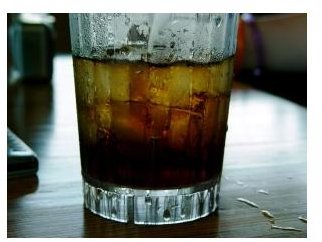Sugar Amounts in Soda: What You Should Know About Your Favorite Drink
Sugar Amounts in Soda: Why You Should Pay Attention
According to the American Beverage Association, soda is the most popular beverage in the United States, beating other popular drinks such as coffee and bottled water by staggering numbers. On average, Americans consume 54 gallons of soda per year. If we are each consuming 54 gallons of soda in a year, we definitely want to pay attention to the sugar amounts in soda. Why? Because research shows that the large amounts of sugar in soda can contribute to weight gain and other health complications.
Unfortunately for those of us who are soda lovers, soda contains a very large amount of sugar in every serving. A sampling of popular sodas showed a range of 38 to 46 grams of sugar per 12-ounce can. The only exception is diet soda which contains no sugar.
If you are not used to measuring in grams, try converting the grams to teaspoons to understand just how much sugar you are drinking. One teaspoon equals 4.2 grams. As an example, a can of soda containing 44 grams of sugar has 10 teaspoons of sugar.
Sugar Content of Popular Sodas
Wondering exactly how much sugar is in your favorite carbonated drink? The following is a current list of sugar content of some popular sodas. The nutrition information for each beverage was obtained directly from the manufacturer.
Sugar Content in 12 oz. Cans of Soda
- Pepsi - 41 grams
- Coke - 39 grams
- Diet Pepsi - 0 grams
- Diet Coke - 0 grams
- Sierra Mist - 39 grams
- Sprite - 38 grams
- Mug Root Beer - 43 grams
- Barq’s Root Beer - 45 grams
- Fanta Orange - 44 grams
- Mountain Dew - 46 grams
Health Effects of Soda
According to CNN, clinical research has shown that soda and other sweetened beverages are directly linked to weight gain. Weight gain, in turn, can lead to very devastating health problems. Weight gain can increase your risk for type 2 diabetes, stroke, high blood pressure, breathing problems and arthritis, among other things. Research also suggests that consumption of soda may contribute to the development of osteoporosis in those who don’t drink as much milk because they drink soda instead. Nutritionists also warn against consuming the tasty drink because it is packed with calories and lacks any real nutrients.
Overall, there are no warnings against soda issued by the Food and Drug Administration, but it is advised that soda be enjoyed in moderation and combined with a well-balanced diet and exercise regimen to ensure optimum health.
Resources
“Carbonated Soft Drinks: What You Should Know,” FDA. https://www.fda.gov/Food/ResourcesForYou/Consumers/ucm232528.htm
“Soda Consumption Linked to Obesity, Type 2 Diabetes, Other Health Concerns,” Mayo Clinic. https://www.mayoclinic.org/news2010-mchi/5914.html?rss-feedid=4
Hellerman, Caleb, “Nutrionists: Soda making Americans drink themselves fat,” CNN. https://articles.cnn.com/2007-09-18/health/kd.liquid.calories_1_nondiet-drinks-hfcs-soda?_s=PM:HEALTH
American Beverage Association. https://www.ameribev.org/
“Nutritional Information,” Coca-Cola. https://www.thecoca-colacompany.com/us_nutrition.html
“Nutrition & Ingredient Information,” Pepsi. https://www.pepsiproductfacts.com/infobyproduct.php
Image Credit: Jonathan King, sxc.hu/profile/imacgooroo
